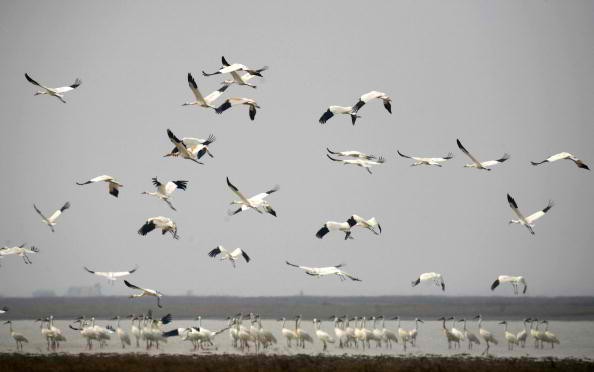One of the only two large freshwater lakes in China is now dried up from massive drought all year round. Water levels are rapidly decreasing because of the Poyang Dam Project.
The drought has caused water shortages as the lake has now shrunk. Experts who oppose the project said that the dam has a large impact on the province's ecosystem.
The 2,993-meter proposed sluice gate is projected to cost about 13 billion yuan ($1.9 billion) and will better connect the lake with the Yangtze, according to the Jiangxi government. The project intends to avoid water shortages and control flooding during the typhoon season.
Experts and environmentalists disagree with the local government's move to construct the dam.
According to Lei Guangchun, director of the School of Nature Conservation at Beijing Forestry University, "the dam project will definitely damage the ecosystem of Poyang Lake as it is a habitat for migratory birds and the rare Yangtze finless porpoise. It would also increase the chance of flooding."
Lei added that the raised water level would "inundate the wetlands in which migratory birds usually find their food and make it harder for them to eat enough."
In 2002, Jiangxi government wanted to build the dam for flood prevention, electricity generation, irrigation and shipping. The plans were opposed by the public and the government decided to build a sluice gate to store water in the winter.
"The dam project will expand water volume in the dry season and avoid the exposure of the lake bed. The food selection for the Yangtze finless porpoise will increase," stated the Jiangxi water department in November.
Ji Weitao, the deputy director of the project's construction office, said: "The worst scenario is that birds will survive by changing their dietary patterns."
Zhou Jianjun, a professor at the Department of Water Conservancy of Tsinghua University, gives a warning: "The situation will further worsen if Dongting Lake, China's second-largest freshwater lake, also builds a dam in the future, as those dams would intercept billions of cubic meter of waters from the Yangtze."



























